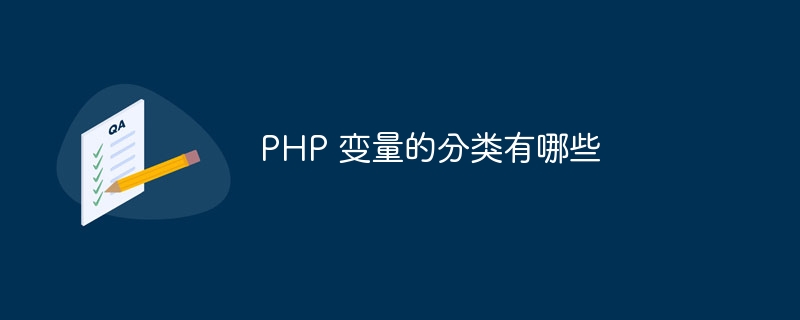
PHP variables are classified into scalar variables, array variables, object variables, resource variables, NULL variables, etc. Detailed introduction: 1. Scalar variables represent a single value. Scalar variables in PHP include integers, floating point numbers, Boolean values and strings; 2. Array variables can store multiple values and access them in the form of key-value pairs. In PHP The array can be an index array, an associative array or a mixed array; 3. Object variables refer to objects instantiated through classes, and object variables can contain properties and methods; 4. Resource variables, etc.

The operating environment of this tutorial: Windows 10 system, PHP8.1.3 version, Dell G3 computer.
PHP variables can be divided into the following categories:
Scalar Variables: Scalar variables represent a single value. Scalar variables in PHP include integers (int), floating point numbers (float), Boolean values (bool), and strings (string).
Array Variables: Array variables can store multiple values and are accessed in the form of key-value pairs. Arrays in PHP can be indexed arrays, associative arrays, or mixed arrays.
Object Variables: Object variables refer to objects instantiated through classes. Object variables can contain properties and methods.
Resource Variables: Resource variables refer to references to external resources (such as database connections, file handles, etc.). In PHP, resource variables are a special variable type used to manage external resources.
NULL variable: NULL variable represents a null value or undefined variable.
These are common variable classifications in PHP. Understanding the different types of variables can help you better understand and use variables in PHP.
The above is the detailed content of What are the classifications of PHP variables?. For more information, please follow other related articles on the PHP Chinese website!